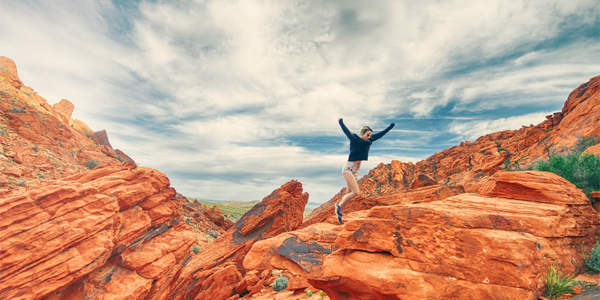 The Colorado Rockies provide some of the best hiking and backpacking trails in the United States. Colorado is famous for its “fourteener” mountain summits reaching peaks above 14,000 feet. There are 53 fourteeners in Colorado making it a popular place for hikers to visit from all over the world.
The Colorado Rockies provide some of the best hiking and backpacking trails in the United States. Colorado is famous for its “fourteener” mountain summits reaching peaks above 14,000 feet. There are 53 fourteeners in Colorado making it a popular place for hikers to visit from all over the world.
Hiking can be fun but it can also be dangerous. High elevations mean less oxygen which can also induce altitude sickness. Here are some quick tips and advice for a safe hiking experience.
- Stay hydrated and eat your carbohydrates. No matter where you are hiking, drinking water and staying hydrated is so important. Avoid diuretics such as caffeine and alcohol. You want to make sure that your cells are getting plenty of water. In higher elevations you want to ensure that you are eating plenty of complex carbohydrates. Carbs help increase energy levels and allow you use oxygen more efficiently.
- Don’t be a loner. Avoid hiking alone and always be sure to let friends of family know where you are going and when. Having a friend with you is always safer, especially in the backcountry.
- Weather conditions can change quickly! Dress in layers and wear fabrics that wick away moisture; avoid cotton. We highly recommend having a mylar blanket in your pack as well. This can help protect you from hypothermia and can be used for several other survival methods. Check out out our 10 ways to use a mylar blanket.
- Always bring extra food and drink. It is a good idea to pack approximately one pound of food per day; and pack nutrient dense foods. Your body can lose a lot of water while hiking and you may suffer from heat cramps or even heat stroke. Drink plenty of fluids, water or a sports drink with electrolytes is best.
- Get acclimated. If you are planning to hike in higher elevations it is a good idea to acclimate slowly. You may want to spend a couple of days in the Denver or Colorado Springs area a few days to get your body slowly used to the altitude. You may even want to consult your physician ahead of time as they may prescribe something to help with altitude sickness if you are prone to getting it.
- Learn First Aid. You never know what may happen. It is best to learn how to deal with minor environmental emergencies such as bee stings and ticks as well as how to handle more complex injuries such as fractures and frostbite. Sign up for one of our first aid classes in order to be more prepared for any injuries or emergencies.
- Learn CPR! CPR saves lives and everyone should know how to do it. Be sure to take a CPR mask or barrier shield in your pack. This is a soft mask or flexible barrier with a one-way valve to protect you from any blood, saliva or vomit.
- A simple first aid kit can be a lifesaver. Pack a few essential items such as Band-Aids, gauze, and bandaging wrap. Tweezers are good for removing splinters and ticks while scissors can cut tape or clothing away from injuries. A malleable splint is also a good idea. We recommend having antibiotic ointment, aloe Vera gel, pain relievers, antihistamines, and antacid tablets. Be sure to always have a good pair of non-latex gloves to protect yourself from blood and bodily fluids.
- Always be Safe. Use common sense. Be careful when climbing rocks or near water. Prepare for the elements, use sunscreen and protective eye wear. Pace yourself and be sure to take appropriate breaks.
The outdoors can be so fun to explore but we always want to be safe. Sign up to learn CPR & first aid at one of our open enrollment classes. These CPR classes are open to the public and offered in the Denver & Colorado Springs on a regular basis. It is always better to be safe than sorry. Happy hiking.
